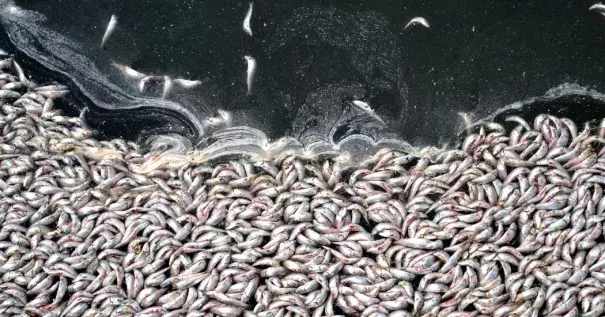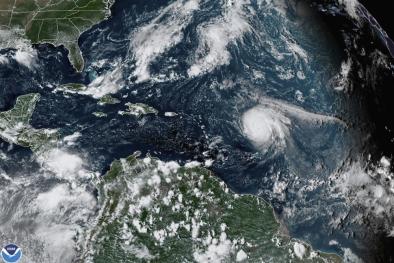World’s Oceans Are Losing Oxygen Rapidly, Study Finds

Signals Summary: As climate change warms the oceans, the density increases causing the water to expand in volume, which contributes to sea level rise. In addition, the same greenhouse gases that are causing global warming are also making the oceans more acidic, which threatens sea life.
It [a report released by the International Union for Conservation of Nature] found that oxygen levels in the world’s oceans declined by roughly 2 percent between 1960 and 2010. The decline, called deoxygenation, is largely attributed to climate change, although other human activities are contributing to the problem.
...
Deoxygenation is just one of the ways the world’s oceans are under assault. As they absorb carbon dioxide, oceans becomes less basic and more acidic, in some places dissolving the shells of acquatic life like clams, mussels and shrimp in what is sometimes called the “osteoporosis of the sea.”
And, since the middle of last century, oceans have absorbed 93 percent of the heat associated with human-caused greenhouse gas emissions, leading to mass bleaching of coral reefs. Warmer water also takes up more space than cooler water. NASA says that this thermal expansion process has caused roughly a third of existing sea level rise.
...
And as ocean temperatures increase, the warmer water can’t hold as much gas, including oxygen, as cooler water.
...
Warming temperatures also affect the ability of ocean water to mix, so that the oxygen absorbed on the top layer doesn’t properly get down into the deeper ocean. And what oxygen is available gets used up more quickly because marine life uses more oxygen when temperatures are warmer.
Related Content




